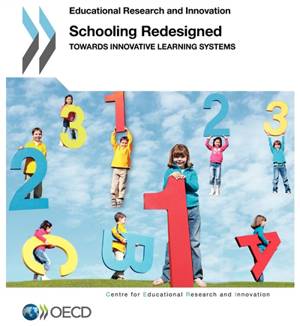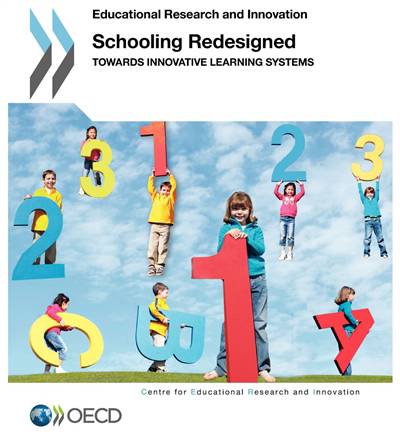
- Retrait gratuit dans votre magasin Club
- 7.000.000 titres dans notre catalogue
- Payer en toute sécurité
- Toujours un magasin près de chez vous
- Retrait gratuit dans votre magasin Club
- 7.000.0000 titres dans notre catalogue
- Payer en toute sécurité
- Toujours un magasin près de chez vous
Schooling redesigned
towards innovative learning systems
Centre for Educational Research and Innovation, Organisation for Economic Co-operation and DevelopmentDescription
What does redesigning schools and schooling through innovation mean in practice? How might it be
brought about? These questions have inspired an influential international reflection on "Innovative Learning
Environments" (ILE) led by the OECD. This reflection has already resulted in publications on core design
principles and frameworks and on learning leadership. Now the focus extends from exceptional examples
towards wider initiatives and system transformation. The report draws as core material on analyses of
initiatives specially submitted by some 25 countries, regions and networks. It describes common strengths
around a series of Cs: Culture change, Clarifying focus, Capacity creation, Collaboration & Co-operation,
Communication technologies & platforms, and Change agents. It suggests that growing innovative learning at
scale needs approaches rooted in the complexity of 21st century society and "learning eco-systems". It argues
that a flourishing middle level of change around networks and learning communities provides the platform on
which broader transformation can be built.
This report is not a compendium of "best practices" but a succinct analysis presenting original concepts
and approaches, illustrated by concrete cases from around the world. It will be especially useful for those
designing, researching or engaging in educational change, whether in schools, policy, communities or wider
networks.
"The OECD's ILE work has mobilised and generated profoundly important knowledge about the nature
of learning and opened understandings of learning environments within and beyond school. The ILE
Framework has already proved to be an invaluable tool for the emerging future of learning leadership
and systems development."
Professor Michael Schratz, Dean, School of Education, University of Innsbruck, Austria; President of the
International Congress for School Effectiveness and Improvement (ICSEI)
"Innovation and creativity are the lifeblood of learning. Schooling Redesigned summarises beautifully one
of the OECD's most fascinating projects - an attempt to look at the DNA of innovation in schools. Using a
global range of actual examples it describes the conditions that education systems have to create if children
and their parents, teachers and communities are to feel confident and optimistic about the future. For
teachers, the messages are inspiring. Education systems have to focus on enhancing teachers' capacity
and motivation. Standardisation cannot do that. Its messages to the profession and its organisations are
profound. Teacher unions are, can and should be at the centre of creating the conditions for innovation."
John Bangs, Special consultant at Education International; Chair of TUAC's international group on
Education, Training and Employment Policy
Spécifications
Parties prenantes
- Auteur(s) :
- Editeur:
Contenu
- Nombre de pages :
- 83
- Langue:
- Anglais
- Collection :
Caractéristiques
- EAN:
- 9789264245907
- Date de parution :
- 25-11-15
- Format:
- Livre broché
- Dimensions :
- 212 mm x 280 mm
- Poids :
- 240 g

Les avis
Nous publions uniquement les avis qui respectent les conditions requises. Consultez nos conditions pour les avis.






